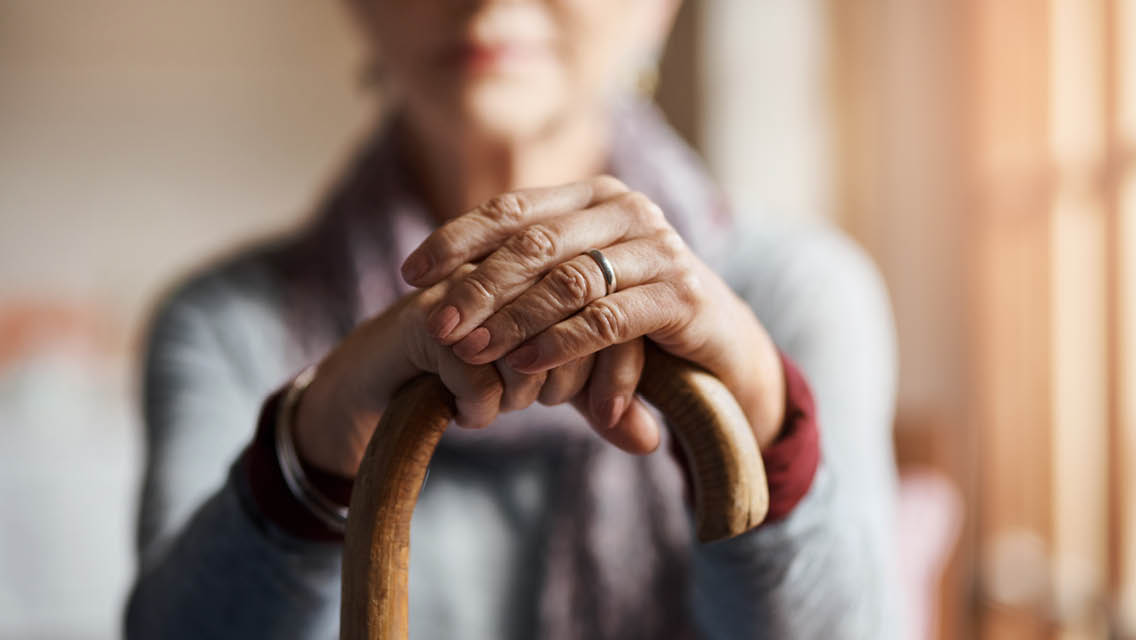A life stage characterized by change and loss as well as wisdom, the senior years present unique mental health challenges and opportunities. Older adults and their loved ones can navigate these waters by staying attuned to the risks as well as the protections that inform well-being in old age.
Major Adjustments, Existential Questions
Tamara Statz, MA, LMFT, a licensed therapist who specializes in treating older adults, families, and caregivers, says her clients contend with a range of challenges specific to aging. One of the most common involves feeling that the body or mind are failing. While neither is easy to confront, physical decline can at least carry a sense of predictability.
“When it comes to physical decline, such as from cancer, we typically have an idea of what the next steps might be, or what future decline will entail,” Statz explains. “By contrast, the unknowns of cognitive decline often feel scarier, more unknown and uncertain for the individual and their loved ones. They often worry, How long until mom doesn’t recognize me anymore? or, Will there come a time when they don’t think to feed themselves?”
With cognitive and physical impairments come a host of practical considerations — whether to continue driving or working; whether to stay in one’s home — which can generate painful emotions in their own right.
Meanwhile, seniors may simultaneously contend with difficult choices and emotions surrounding a partner’s physical or mental decline. This experience is especially difficult when memory loss is involved: A loved one is physically present but psychologically absent. What’s more, the “living loss” may go unrecognized by others.
“To peers, family, and friends, the person is still physically alive and present day-to-day, so the loss might not be validated and supported,” explains Statz. “It can be a time of tremendous anticipatory grief and ambiguous loss, as the person is physically present, but to a degree cognitively absent, in cases of dementia or memory loss.” (For more, see “Coping With Ambiguous Loss“.)
When a spouse does die, the survivor must contend not only with grief but, in many cases, existential questions about their own identity and mortality. And the recognition that time is limited brings significant, sometimes painful, personal reckoning.
Developmental psychologist Erik Erikson theorized that we pass through eight psychosocial stages in our lifetime, each consisting of a crisis to be resolved. Erikson described the final life stage as a crisis of ego-integrity versus despair. In this stage, individuals attempt to make sense of their lives by accepting the past, appreciating the wisdom gained through difficult experiences, and regarding death as a natural part of life.
Those who struggle to resolve this crisis may experience profound feelings of regret, remorse, and hopelessness — what Erikson called despair. Though it is by no means inevitable, such despair can make the twilight years dark indeed.
Aging and Depression
While the changes, losses, and stressors associated with aging can all contribute to mental-health problems, aging itself is not a risk factor. In fact, most mental-health disorders start in adolescence or early adulthood, and some, like social anxiety disorder, may fade with age.
When it comes to mood disorders like depression, the picture is more complicated.
Studies suggest that contentedness in the final years depends in part on how one spent their previous years. Those who look back on a life marked by non-material achievements, such as meaningful relationships and positive contributions to the community, tend to be happier and more at peace with aging than those who focused on material goals.
Present-day lifestyle also informs mood. Especially significant is whether one maintains adequate social connection. Loneliness correlates with depression at any age, and factors unique to aging such as retirement and mobility issues can indeed lead to isolation. (See “The Health Effects of Loneliness and Isolation” for more.)
Yet, many seniors maintain vibrant social lives. They volunteer, participate in faith communities, or spend time with grandkids. And increasingly, they use technology to maintain connection with loved ones — a practice shown to ward off depression.
More conclusive is the relationship between depression and mental decline. Evidence suggests that cognitive and mood impairments tend to go hand in hand, and studies suggest that of the two, depression — whether paired with cognitive decline or not — is more harmful to quality of life.
Moreover, compared to depression that began prior to old age, late-onset depression is more likely to go undetected. Those who have not experienced serious or persistent depression in the past may not recognize what they’re experiencing (see “Warning Signs for Depression in Seniors” at the end of this article). As a result, medical providers often focus on biological rather than psychological treatments, or overlook mood changes that arise alongside the onset of a chronic illness such as Parkinson’s.
Statz believes depression can be both over- and under-diagnosed among seniors. “We as a society have a narrative that aging is inherently depressing, so we might not see that an aging parent is actually really struggling. Or perhaps for an older adult who’s always been depressed or withdrawn, we might fail to see what’s going on.”
She also sees the reverse occur. Normative responses to grief and loss can be mistakenly labeled as depression, and sometimes adult children grow concerned that a parent is isolating when, in fact, that individual may have always been more comfortable alone.
“Sometimes it’s about adjusting our own expectations as a family to see that what’s happening isn’t actually pathological, or what I call a capital-P Problem. Sometimes it turns out that Dad always enjoyed sitting at home reading the newspaper, but we weren’t paying attention to it,” she says. “Now that we’re tuned into it, we get concerned that he’s isolating himself, when actually he’s always enjoyed and valued his alone time. It wasn’t a Problem before, does it need to be now?”
Aging Happily
For all its challenges, many individuals grow more — not less — content in their later years. Researchers have described this phenomenon as the “U-shaped curve,” in which mental well-being declines in middle age before rebounding later in life. One 2016 study even plotted a steady upward-rising line from youth to old age.
And though the prospect of dwindling years can be frightening, recognizing that one only has so much time left may also ignite a sense of purpose.
“For some folks, the realization of limited time inspires life changes such as eating better, exercising, or ending relationships that no longer serve them,” says Statz. “Other folks don’t want to change a thing because they like what they’re currently doing with their lives. They’d rather live out whatever time they have focusing on doing what feels good and leave it at that.”
Even reflecting on death itself can foster positive emotions.
“I spend a lot of time talking with clients about death and dying, and specifically, following the loss of a spouse, oftentimes clients want to talk about what comes next, an afterlife, or other ways to connect with their loved one,” says Statz. “For some folks, having faith that heaven is where their loved one is now, and seeing them again, is particularly comforting. For others, having a sense of their loved one’s presence in their day-to-day brings them peace and connection.”
Aging, as the saying goes, is not for the faint of heart. Yet there are gains alongside the losses. By continuing to cultivate meaning and connection and deciding what to hold onto and what to release, the golden years can be just that.
Warning Signs for Depression in Seniors
Depression is characterized by a low mood; feeling hopeless, worthless, or empty; and diminished interest in activities that once brought pleasure. Also common are somatic impairments, such as disrupted sleep or appetite, low energy, and slowed movement.
Depressed older adults may experience all of these symptoms but are more likely to notice and report somatic concerns, making changes in sleep, eating, and energy key warning signs. And because such symptoms may be mislabeled as signs of a physical-health condition, it’s especially important to concurrently assess for mood changes.
However, older adults — especially men — may be more inclined to report feelings of anger, irritability, and apathy than sadness. Accordingly, it can be more effective to inquire about changes in temper, motivation, and pleasure.
Also watch for decreased social interaction, especially among those who have historically enjoyed socializing, as well as statements reflecting feelings of failure or guilt. And take thoughts of suicide seriously, especially among older men, who are one of the most vulnerable demographics for suicide. (Dial 988 to reach the National Suicide Prevention Lifeline, a 24-hour mental-health version of 911 staffed by trained counselors.)
This article originally appeared as “Seniors’ Most Common Mental-Health Issues” in the November 2022 issue of Experience Life.






This Post Has 0 Comments